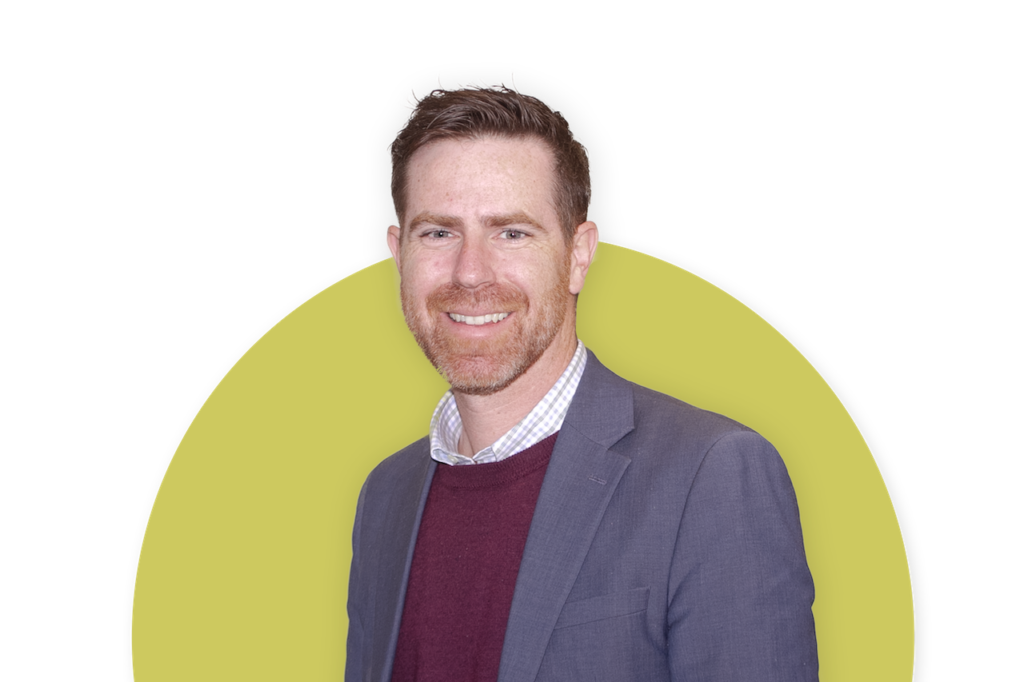There was a throw pillow on my childhood couch stitched with the phrase, “Home is where the Navy sends us,” which was true – it had to be – we moved eleven times in 18 years. While duty stations frequently changed during my childhood, that pillow represented one of three unwavering constants: the Navy, my family, and the Catholic Church.
As a young adult, I often wrestled with the question of where I was from, but I never struggled with who I was; my identity always felt well established. In adulthood things continued to change: I married, my wife and I started our own family, and over time, I lost my close affiliation with the Navy, but never separated from the faith.
Through the changes, challenges, moves, deployments and stages of life, the Eucharist was constant. It was God who called me into being, the Holy Spirit who accompanied me, and Christ who shared in my humanity so that I could share in his divinity.
I know who I am because I know whose I am. My identity is found in Christ’s Eucharistic love.
When we speak about identity, we try to articulate that which is most fundamental to a person. We may be sons, mothers, coaches, fans, professionals, enthusiasts, or have an affinity for one thing or another. All of those, however, are second, third, or fourth order traits of our identity.
What is more fundamental? Go back to our common creation; our first identity is that of being created, chosen, and called by God. Through that reality, we are imbued with value and dignity because God called us into existence, God gave us life, God created and chose us to be.
This is what God does: creates. It’s central to God’s identity. In fact, it’s the first thing we learn about God in Scripture – the first five words of the Bible are “In the beginning, God created…” Some might point out that in 1 John 4:8, we hear a different definition of God, “God is love.”
These two realities are beautifully connected and written into the human experience because creation is the natural fruit of love. Love is life-giving; it is creative. And we? We are who Love created.
The Scripture from John goes on to connect to the Eucharist: “In this way, the love of God was revealed to us: God sent his only Son into the world so that we might have life through him” (1 Jn 4:9). Where life was lost in original sin, God gives new life through Christ’s Eucharistic sacrifice.
St. Augustine famously wrote in his “Confessions”: “The Lord made us for himself, and our hearts are restless until they rest in him.” For those who search for purpose and identity, for those who seek every worldly thing and still find themselves empty, God offers the fullness of life paid for by the Eucharistic sacrifice of his son.
By virtue of our existence, the Church proclaims dignity to every man, woman and child, created by a God who creates because he loves. By virtue of Christ’s Eucharistic sacrifice, we know our worth as his sons and daughters.
This is who we are; it is our identity. We are created and redeemed by a God who loves us with a Eucharistic love.
When we become aware of the profound power and beauty of this kind of love, it compels us to response. Perhaps we contemplate the gift of the Eucharist more intentionally. Ideally, we prepare our hearts and receive the Lord more reverently and frequently.
Maybe, when we look at the humanity around us, we extend a bit more dignity and honor to all those sons and daughters God also called into creation. Our identity leads us to share our joy and pass along the good news to them as well.
The National Eucharistic Revival’s Year of Mission Playbook invites us to embrace our true identities as beloved children of the Father through our relationship with Christ in the Eucharist.
Go, be bold in faith, be filled with the Spirit of God, because you know who you are and whose you are. Fair winds and following seas.
 Daniel Harms has worked for the Diocese of Richmond since 2012 and served as Associate Director for Marriage, Family, and Life Ministries since 2023. As a speaker and musician, Dan has presented to Catholic audiences in 46 states and seven countries. He and his family are parishioners at St. Edward the Confessor, Richmond.
Daniel Harms has worked for the Diocese of Richmond since 2012 and served as Associate Director for Marriage, Family, and Life Ministries since 2023. As a speaker and musician, Dan has presented to Catholic audiences in 46 states and seven countries. He and his family are parishioners at St. Edward the Confessor, Richmond.

